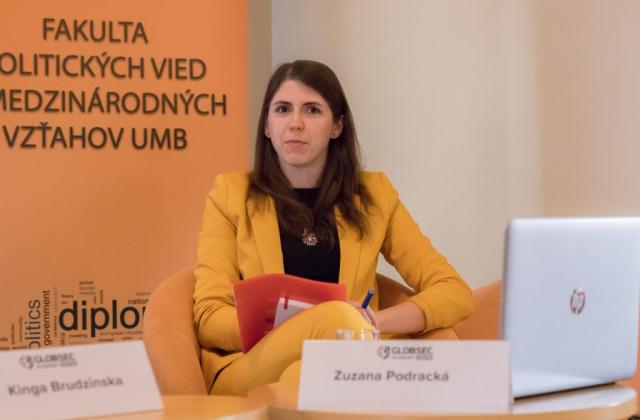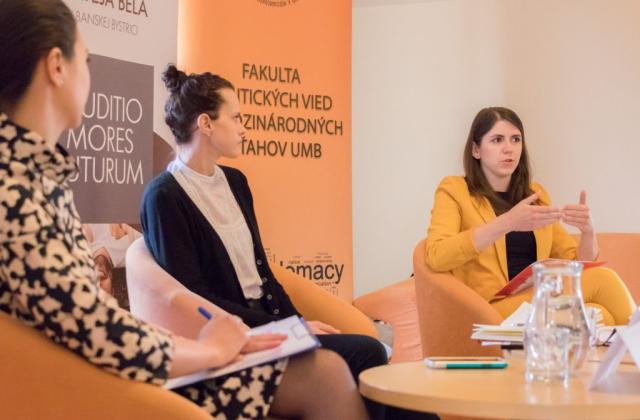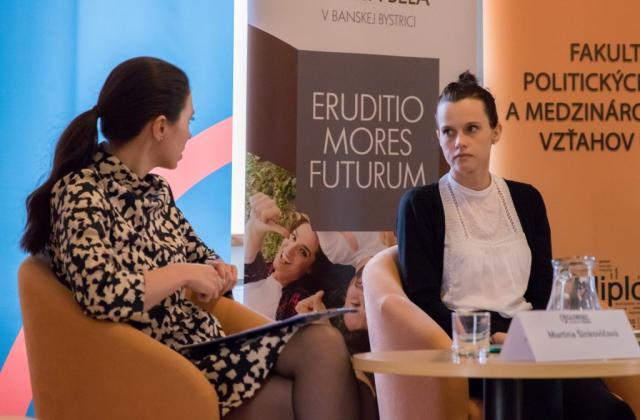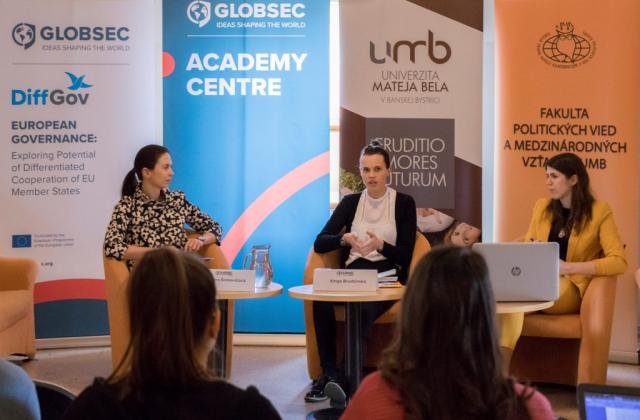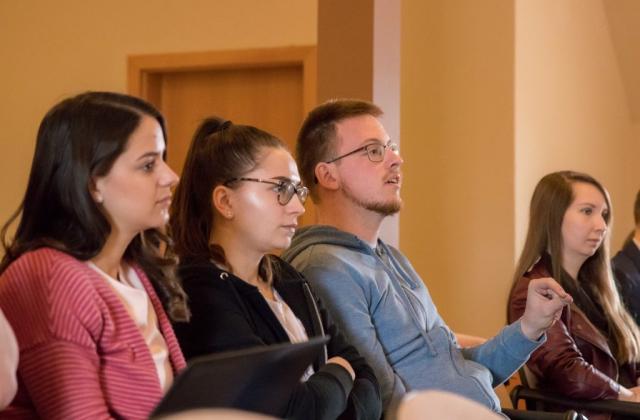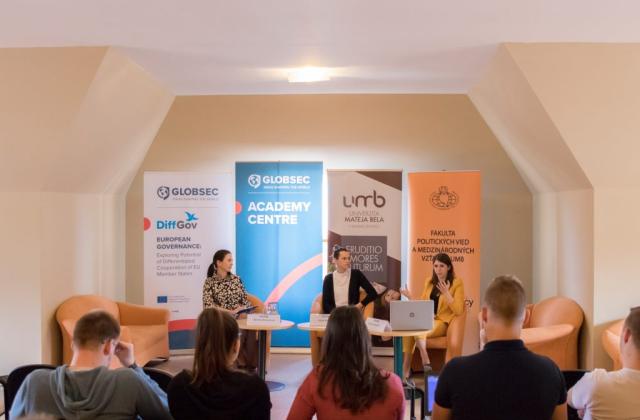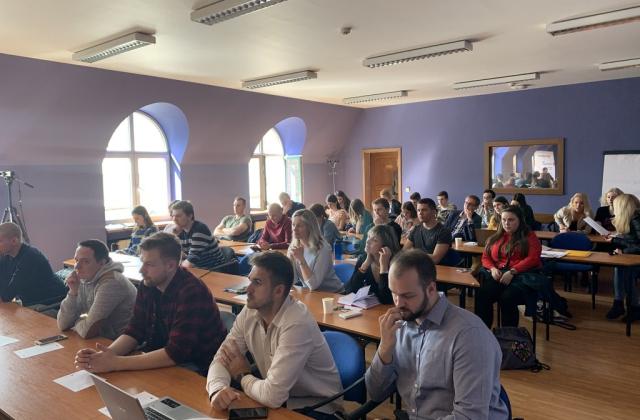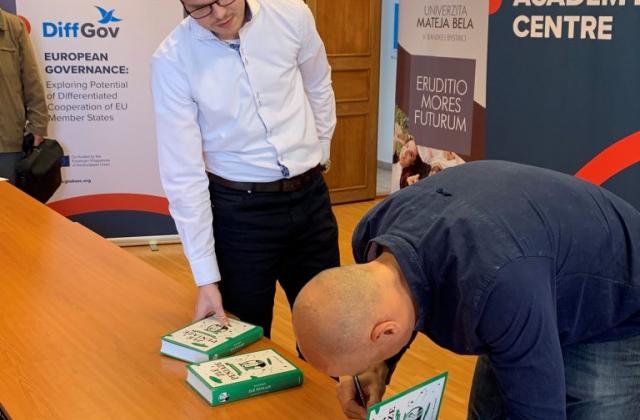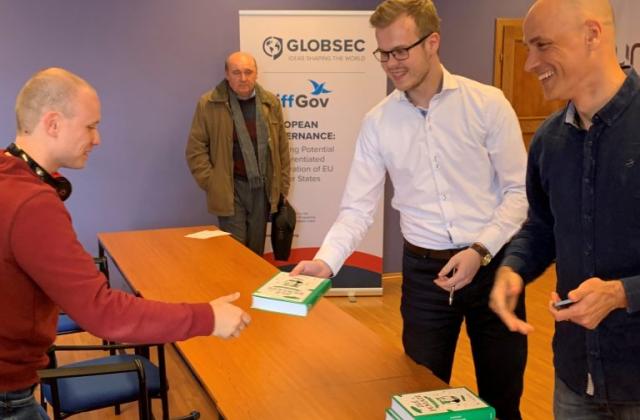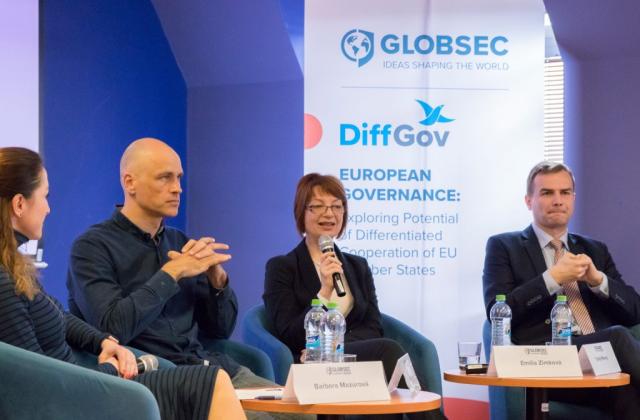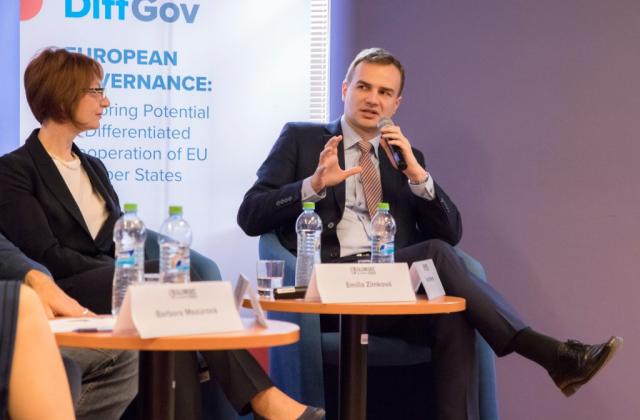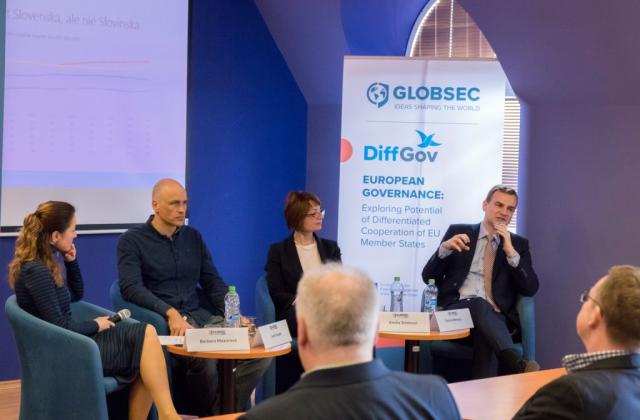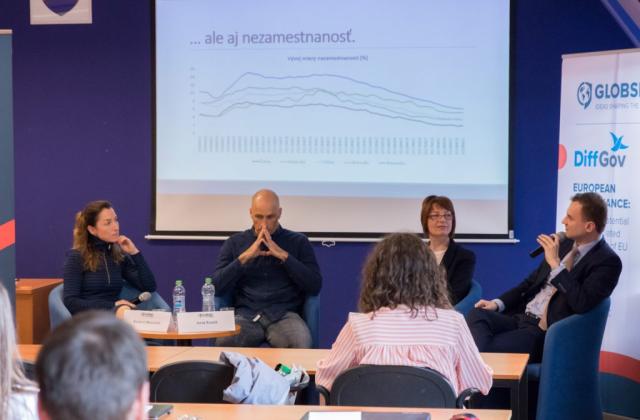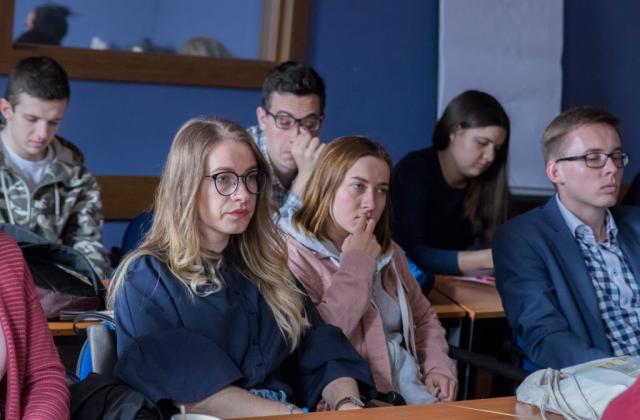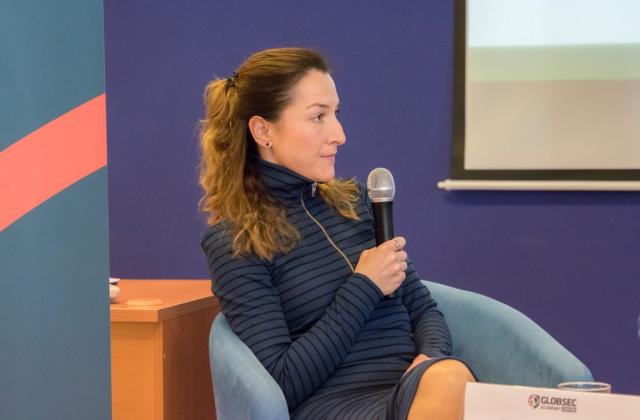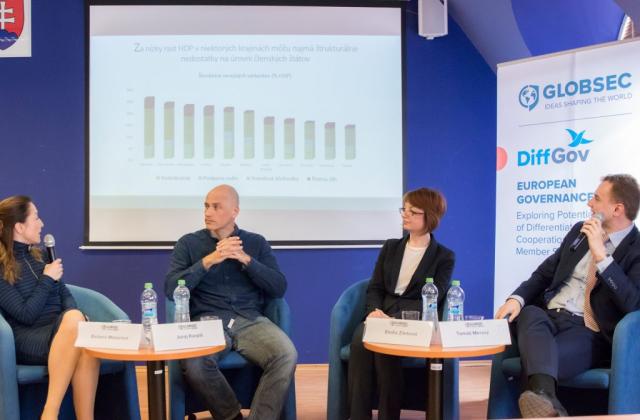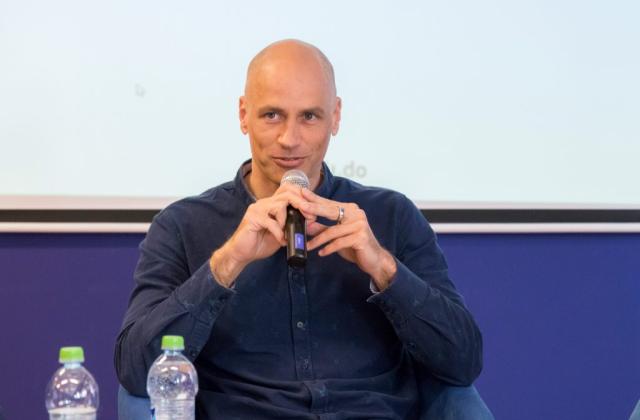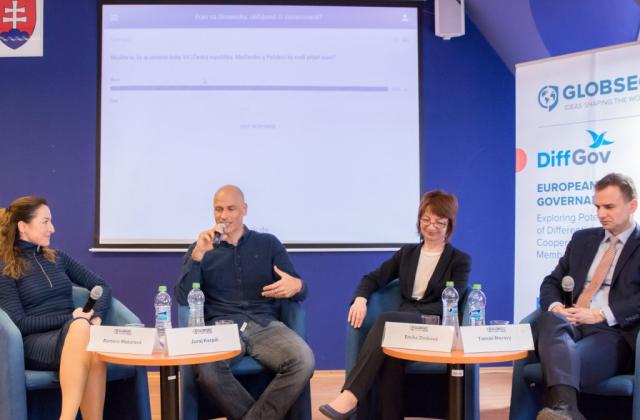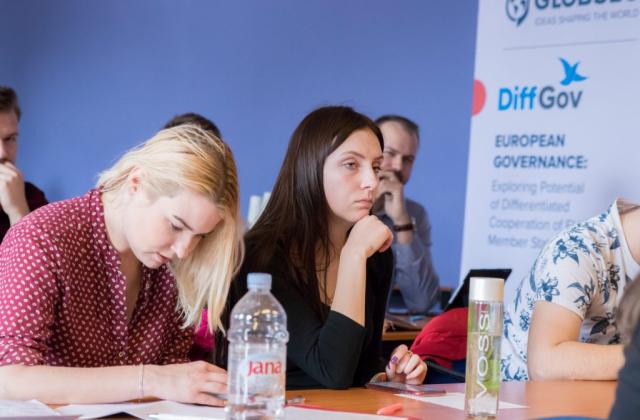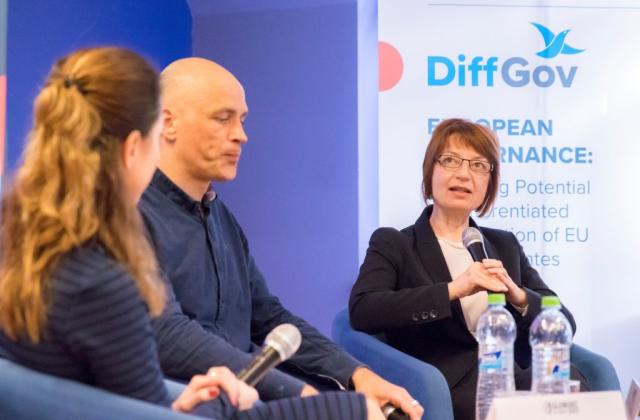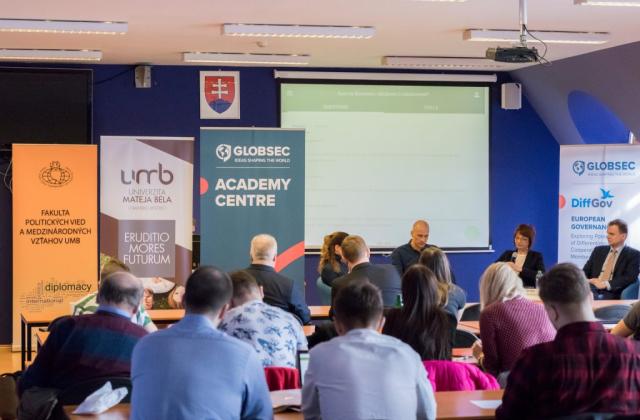Summary of DIFF GOV City Talk #1 in Banská Bystrica 2019

Will the European project be strengthened or weakened in 2019? Will the European Union (EU) Member States decide to favour a sovereigntist or integrationist approach? What impact will it have on European governance and unfinished reforms of the eurozone? What are the lessons learnt for Slovakia from the adoption of the single currency? How to keep the momentum of a good image for the euro in Slovakia? How can Slovakia contribute to fixing the eurozone’s institutional flaws and thus ensuring the euro’s long-term viability?
Those were some of the questions raised during the first DIFF GOV City Talk that took place in Banská Bystrica, Slovakia on 2 April 2019 at the Faculty of Political Science and International Relations, Matej Bel University. The City talk was divided into two sessions.
First was “HOPES and DREAMS: What to expect from the European Parliamentary (EP) elections?” a 100% female panel held in English and focused on the upcoming elections of representatives to the EP. The participants were interested in the composition of the new EP, and the impact of Brexit on the EP seats. The participants found particularly interesting the discussion about the situation in Slovakia. The speakers included: Zuzana Podracká, Future of Europe Stream Lead, GLOBSEC; Martina Šinkovičová, PhD., Head of GLOBSEC Academy Centre; and Kinga Brudzinska, PhD., Senior Researcher, GLOBSEC Policy Institute.
Second was “Slovakia & the Euro – More LOVE than HATE” which was held in Slovak and reflected on the 10th anniversary of the euro in Slovakia, and the 20th birthday of Europe’s single currency, as well as the future of the eurozone. The participants were interested in learning if the V4 countries (Poland, Hungary, Czech Republic, and Slovakia) would have a more powerful voice if all of those four countries would share a common currency, and in what way would it help. Additionally, the audience asked if the speakers thought Slovakia had the same voice as France and Germany in shaping eurozone reforms. Finally, they asked if the EU was equipped with the mechanisms that would minimize the future impact of crisis on a national level or on the European Central Bank level. The speakers included Juraj Karpiš, Analyst, Co-Founder, INESS, Institute of Economic and Social Studies; Barbora Mazúrová, Ing., PhD. Faculty of Economics, Matej Bel University; Tomáš Meravý, Chief Economist at GLOBSEC; and Emília Zimková, Professor in Finance at the Faculty of Economics, Matej Bel University.
The event was live-streamed. If you wish to watch a discussion, please go here.
Video prepared by Matej Bel University can be found here.
The press release can be found here.
A summary of the event and presentations can be download below.
